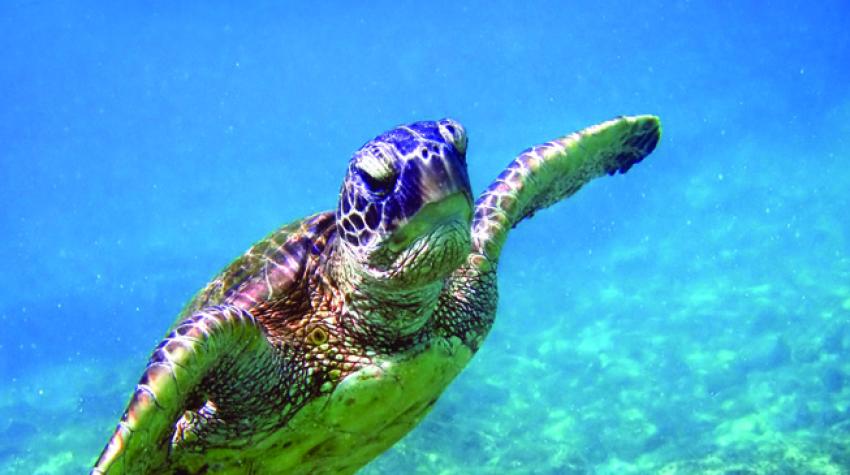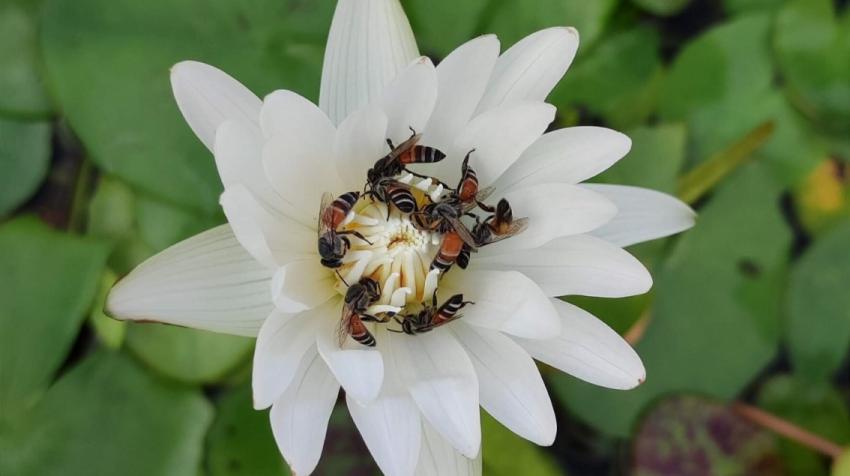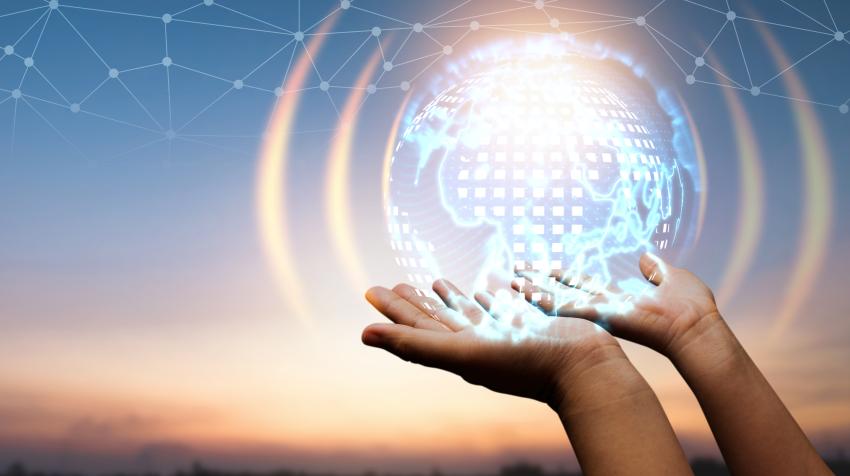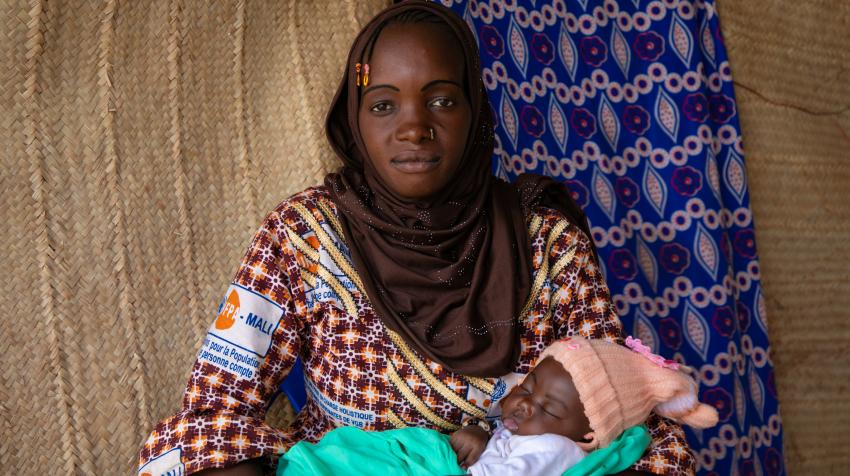May 2017, Nos. 1 & 2 Volume LIV, Our Ocean, Our World
As I write this article, my country, Peru, is experiencing one of its greatest natural disasters of all time. Due to a phenomenon known locally as the coastal El Niño, intense warm ocean currents have caused heavy rainfall in some parts of the country, which led to flooding and landslides that have severely impacted the lives of over a million people.
Many assert that these types of natural phenomena can be intensified by climate change, while sceptics claim that there is still not enough data to justify this. By now, however, there should be a consensus that humanity intrinsically depends on the ocean, and it is thus our obligation to protect it. The ocean is our planet's main life source. Two out of three breaths we take are oxygenated by the ocean. It defines our climate and provides food security. A healthy ocean guarantees subsistence and survival. We would think that such a critical notion should be embraced and preached by all, but that is not the case.
The severe disregard that people show the ocean came to my attention at an early age. In 2007, I was a 22-year-old undergraduate student researching threatened sea turtles in northern Peru. After observing the increasing mortality of these species, I approached schools in fishing communities to inquire about their initiatives in marine education. To my surprise, these issues were not being addressed by the local education system.
Soon after, realizing that there was an urgent need to connect people to the ocean, I founded Planeta Océano, a non-profit organization that empowers coastal communities through marine conservation, research, education and sustainable economic development. We also established the Marine Educators Network, with over 50 schools in Peru, to incorporate marine issues into education systems in a crosscutting manner. With this network we have built capacity in educational institutions, developed game-based learning and engaged thousands of students in youth-led initiatives that positively impact their communities.
The network also provides youth with training in marine conservation, project development and leadership. Participants identify local environmental challenges, and receive technical and financial support to work towards solutions. To date, over 400 young people have been engaged in youth-led initiatives ranging from mangrove reforestation to advocating for sustainable fisheries, among others.
In addition to this incubator of young conservationists, we have involved youth in all Planeta Océano programmes. Youth act as 'citizen scientists' and are taught how to carry out research, collecting data to benefit fisheries management and threatened species, and how to help promote sustainable economic activities, such as ecotourism. At Planeta Océano, youth start as volunteers, but over time they can access leadership positions and assist in the management of activities, projects and programmes. Youth can also help guide design strategies and agendas, and engage with stakeholder groups, including fishermen, schools, businesses and authorities.
This approach has allowed us to reach over 500,000 people in Peru and enhance the personal and professional development of hundreds of youth. It has sparked multiplier effects and ownership in local communities, since messaging comes from youth community members themselves. Together with youth we are changing how marine environments are perceived. We are contributing to local success stories, such as that of Josué Granda, the 4-year-old who helped his sister volunteer in our sea turtle research programme, and who now-at 14 years of age-leads a popular environmental club in his community. Another success story involves Edgardo Cruz, the fisherman who captured a vulnerable manta ray yet later became an ambassador for manta ray conservation. Youth have become key actors in achieving legal protection for threatened manta rays, and reported new scientific evidence in support of sea turtle and elasmobranch conservation, among other activities.
As a young entrepreneur once myself, my journey with Planeta Océano has allowed me to witness the huge potential of young people in conservation and sustainable development. It has shown me the importance of engaging youth not only as participants and collaborators, but also as genuine strategic partners.
Youth are already coming up with creative solutions to the world's greatest challenges.1 Thus, tapping into youth-a population of around 1.8 billion people worldwide-and their energy and potential for innovation and creativity is extremely timely. Despite global goals urging greater conservation efforts,2 only 3 per cent of the world's ocean is protected;3 overfishing and ecosystem degradation jeopardize food security; and sea level rise endangers the well-being of coastal communities. Nevertheless, young people remain one of our largest untapped resources for advancing the global marine conservation agenda.
This is where scaling marine education becomes critical for harnessing the potential of youth. Marine education can provide young people with the skills, tools and perspectives necessary to conserve marine environments.
If we want to further engage youth in marine conservation, however, we also need a broader systemic change. This includes, for example, further incorporating youth leadership and counselling into local, national and international institutions; increasing connections between youth and relevant stakeholders; and boosting funding for qualified youth leaders. Moreover, we need to engage entire communities—women, teachers, fishermen and children—in the design, implementation and monitoring of conservation and management efforts at every stage of these processes.
It has been 10 years since my team and I started working in the field of marine conservation. As I look back, I recognize the impact that education, partnerships and support have had on our own early career development and on our community. In the same way, engaging more youth and a greater number of local communities can promote positive change, help overcome environmental challenges and enhance effective strategies for conservation worldwide.
Furthermore, by engaging youth and coastal communities, we can also bring people together, fostering good citizenship, peace and pride, and ultimately, building communities of optimism and hope. This is exactly what marine conservation and our world finally need.
For more information on Planeta Océano, visit www.planetaoceano.org.
Notes
1 For more information on youth Initiatives, see YouthActionNet website. Available from http://www.youthactionnet.org. For more information on youth entrepreneurs, see Forbes website. Available from www.forbes.com/30-under-30-2016/social-entrepreneurs/.
2 Louisa J. Wood and others, "Assessing progress towards global marine protection targets: shortfalls in information and action", Oryx, vol. 42, No.3 (July 2008), 340-351.
3 For more Information, see Marine Protected Areas Atlas. Available from http://www.mpatlas.org/.
The UN Chronicle is not an official record. It is privileged to host senior United Nations officials as well as distinguished contributors from outside the United Nations system whose views are not necessarily those of the United Nations. Similarly, the boundaries and names shown, and the designations used, in maps or articles do not necessarily imply endorsement or acceptance by the United Nations.




